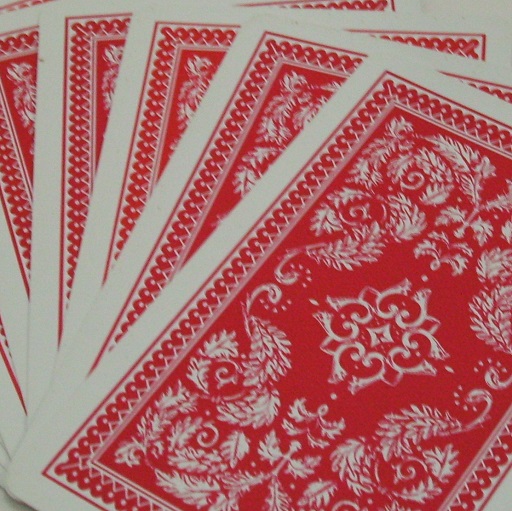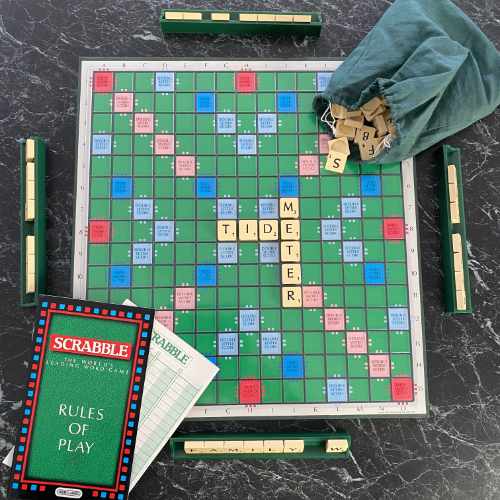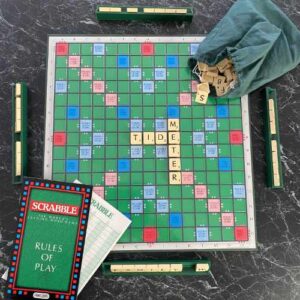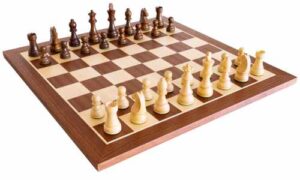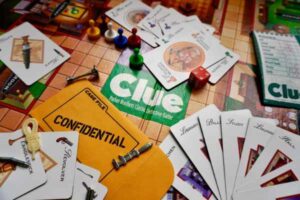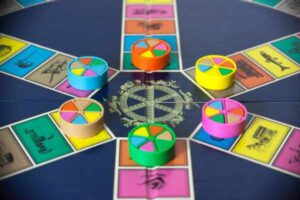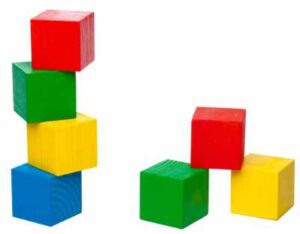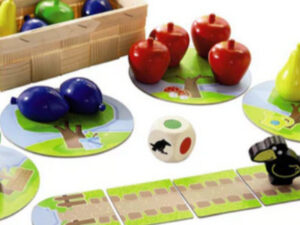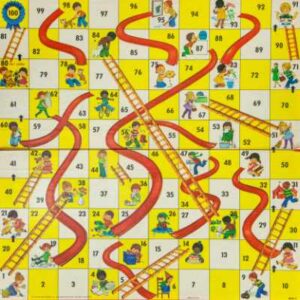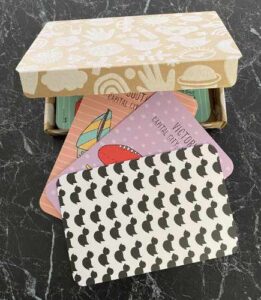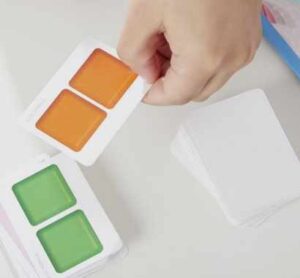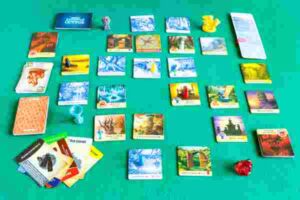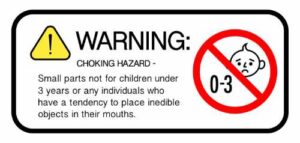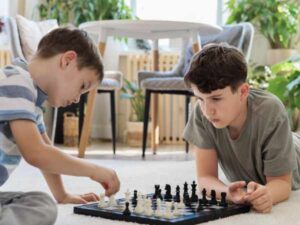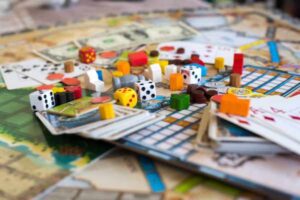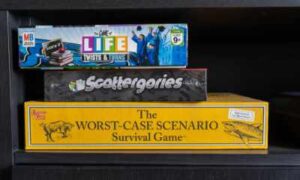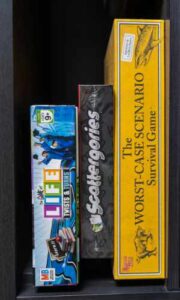The fun and laughter of Family Board Games
Family board games are where fun, laughter and friendly competition collide! Board games are a fantastic way to gather the whole family around a table and engage in hours of entertainment. There are many board games suitable for different age groups, ensuring that there’s something for everyone. From classic favourites to age-appropriate options for toddlers and young children, we’ll step you through the excitement of cooperative games for teens, safety precautions to keep in mind, storage tips, the benefits of playing board games, and strategies for dealing with sore losers. Let’s roll the dice and begin our family games.
Quick Content Links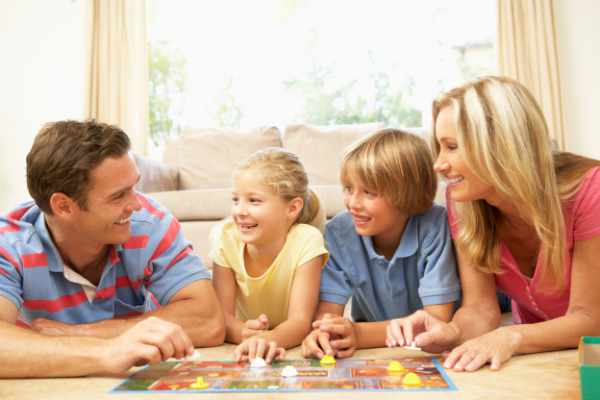
- Top 5 Classic Board Games
- Board Games for Toddlers
- Board Games for 2 Year Olds
- Board Games for 3 Year Olds
- Cooperative Games for Teens
- Safety Precautions for Board Games
- How to Store Board Games
- 5 Ways to Help a Sore Loser
- Benefits Of Playing Board Games
Top 5 Classic Board Games
Classic board games have withstood the test of time and continue to provide endless enjoyment for families. Let’s look at five all-time favourites that are sure to bring nostalgia and laughter to your game nights. We have given you a brief overview of each game.
Classic #1 Monopoly
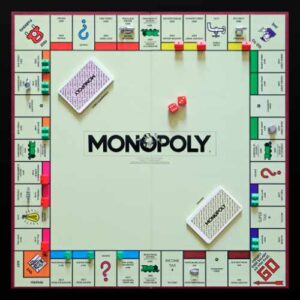
- A game about money, real estate, becoming wealthy or becoming bankrupt
- Choose a player to be the banker who manages the money and properties.
- Roll the dice and move your token around the board, buying properties, collecting rent, paying bills, and building houses and hotels
- Negotiate and trade with other players to create monopolies and gain a competitive advantage
- The goal is to bankrupt your opponents and become the wealthiest player
Classic # 2 Scrabble
- A game where you make and build words
- Each player starts with a set of letter tiles
- Use your tiles to form words on the game board, connecting to existing words and earning points based on the letters’ values.
- Strategically place your tiles to maximise points and block opponents’ ptential moves
- The player with the highest score at the end of the game wins
Classic # 3 Chess
- A game of critical thinking, planning, and spatial awareness
- Set up the chessboard with the pieces in their starting positions
- Different chess pieces can move in different ways across the board
- Players take turns moving their pieces strategically to capture the opponent’s pieces and eventually checkmate the opponent’s king
Classic # 4 Clue
- A game of deduction
- Each player assumes the role of a character trying to solve a murder mystery.
- Move around the game board, collecting clues and making deductions to determine the suspect, weapon, and location of the crime.
- The first player to correctly solve the mystery wins the game
Classic # 5 Trivial Pursuit
- A question-and-answer game
- Test your knowledge across different categories by answering trivia questions.
- Move around the game board, collecting wedges by correctly answering questions in various subjects
- The first player to collect all the wedges and reach the centre of the board wins the game
- These classic board games offer a mix of strategy, deduction, wordplay, and trivia, ensuring hours of engaging gameplay and friendly competition for the whole family
Board Games for Toddlers
Even the youngest members of your family can join in the fun with board games designed specifically for their age group. Discover interactive and educational options that will captivate your toddler’s attention while fostering important developmental skills. Technically they might not be board games, but they lay a good foundation
Toddler # 1 Stacks on the Stack
- Encourage your toddler to practice fine motor skills and balance while having fun with cute animal figures or colourful shapes
- Each player takes turns adding to the stack on top of each other
- The goal is to stack as many pieces as possible without them toppling over
- More about Stackable Blocks
Toddler # 2 Seek-a-Boo
- Lay out a set of picture cards face-down
- Encourage your toddler to flip over the cards and find matching pairs
- This game promotes memory skills, object recognition, and turn-taking
Board Games for 2-Year-Olds
At the age of 2, toddlers begin to understand turn-taking and simple rules. Explore board games that introduce basic concepts like colours, shapes, and counting, while providing engaging gameplay for your little one
2 Year Olds #1 My First Orchard
- This cooperative game aims to collect all the fruit from the orchard before a pesky raven reaches it.
- Players take turns rolling a colour dice and collecting the corresponding fruit tokens.
- The game fosters teamwork, colour recognition, and basic counting skills.
2 Year Olds #2 Chutes and Ladders (a variation of Snakes and Ladders)
- Spin the spinner ( or a numbered dice) to determine how many spaces to move your game piece.
- Navigate the board, climbing ladders to advance and sliding down shutes to go backward.
- This classic game teaches counting, number recognition, and turn-taking.
Board Games for 3-Year-Olds
Three-year-olds are eager to explore and learn. Introduce them to board games that encourage early literacy, problem-solving, and fine motor skills, all while having a great time with their favourite character and themes
3-Year-Olds #1 Memory Match
- Lay out a set of picture cards face down.
- Use different sets of cards as the child’s expertise develops
- Players take turns flipping over two cards at a time, trying to find matching pairs
- The game enhances memory skills, object recognition, and concentration
3-Year-Olds #2 Candy Lane
- Draw coloured cards from the deck and move your game piece along the candy-themed path
- The game introduces colour recognition and turn-taking while exploring a whimsical world
Cooperative Games for Teens
Cooperative Games offers a unique twist on traditional competitive gameplay. Engage your teenagers in collaborative adventures where they work together to achieve a common goal, fostering teamwork, communication, and strategic thinking.
#1 Pandemic
- Players work together as specialists to prevent the spread of global diseases and find cures.
- Strategize, share information, and use each player’s unique abilities to save the world from the pandemic
- The game promotes cooperation, critical thinking, and problem-solving
#2 Forbidden Island
- Collaborate with other players to retrieve ancient artifacts from a sinking island before it’s too late
- Navigate the island’s changing landscape, gather treasures , and escape to safety together
- This cooperative adventure encourages teamwork, communication, and strategic planning
Safety Precautions for Board Games
While board games are generally safe and enjoyable, it’s important to keep a few safety precautions in mind to ensure everyone’s well-being. Learn about potential hazards and simple measures to keep game nights accident-free.
Precaution #1 Small Parts and Choking Hazards
- Ensure that board games are age-appropriate and do not contain small parts that can be a choking hazard for young children
- Keep an eye on younger players to prevent them from putting game pieces or small components in their mouths, noses, or ears.
- If playing with younger children, consider using games specifically designed for their age group or games with larger, safer components
Precaution #2 Clear Playing Area
- Before starting a board game, ensure the playing area is free of any clutter or obstacles that may pose a tripping hazard
- Provide enough space for all the players to comfortably reach the board game and move their game pieces without knocking over objects
- Remove any breakable or valuable items from the playing area to prevent accidents or damage during gameplay
Precaution #3 Play One Game at a Time
- Mixing up the components of different games invariably results in chaos and frustration.
- Missing pieces or incorrect pieces can easily confuse the players and the outcome of the game
- Pack up each game, before you start the next
How to Store Board Games
Proper storage is crucial for maintaining the longevity and condition of your board games. Discover practical and creative storage solutions that will keep your game collection organized, protected, and ready for countless future game nights.
Tip 1 Shelf Dividers
- Use shelf dividers or organizers to keep board game boxes neatly arranged and prevent them from toppling over
- This helps maintain the condition of the game boxes and makes it easier to locate specific games without creating a mess.
Tip 2 Ziplock Bags for Components
- Place game components, such as cards, tokens, or dice, in separate ziplock bags within the game box, to keep them organized and prevent loss or damage.
- label the bags to easily identify and retrieve specific components during setup.
Tip 3 Custom Inserts or Organizers
- Consider investing in custom inserts or organizers designed specifically for board games
- These insets help keep components organized, provide a secure fit, and often make setup and cleanup more efficient.
Tip 4 Vertical Storage
- Store board game boxes vertically instead of stacking them horizontally
- This prevents excessive weight on lower boxes, reduces the risk of crushing or damaging the game boxes, and makes it easier to access and retrieve specific games
Tip 5 Dedicated Game Storage Area
- Create a dedicated game storage area, such as a shelf or cabinet, to keep all your board games in one place
- This not only helps with organization but also showcases your game collection and makes it convenient to choose games for family game nights
5 Ways to Help a Sore Loser
Dealing with a sore loser can put a dampener on the fun of game nights. Learning effective strategies and techniques to help children and even adults cope with losing, will promote good sportsmanship, resilience, and positive family dynamics.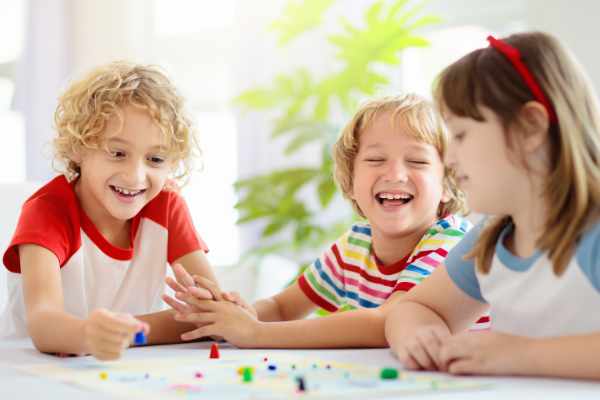
- Strategy 1: Model Good Sportsmanship: Lead by example and demonstrate good sportsmanship during board game sessions. Show empathy, respect, and graciousness, whether you win or lose. This sets a positive tone for the entire family and encourages others to follow suit.
- Strategy 2: Encourage Perspective-Taking: Help a sore loser develop empathy by encouraging them to consider the feelings of the others. Prompt them to imagine how it feels to lose and how their reactions may impact the enjoyment of others. This fosters understanding and empathy towards their fellow players.
- Strategy 3: Teach Coping Strategies: Teach the sore loser constructive ways to cope with disappointment or frustration. Encourage them to take deep breaths, count to ten, or engage in a calming activity to manage their emotions. Redirecting their focus towards positive strategies can help them deal with defeat more effectively.
- Strategy 4: Focus on Effort and Improvement: Shift the focus from winning to personal growth and improvement. Encourage the sore loser to celebrate their own progress and achievements, rather than solely focusing on the outcome of the game. Emphasize the importance of learning and enjoying the process, regardless of the result.
- Strategy 5: Emphasize Fun and Togetherness: Remind the sore loser that the primary goal of playing board games as a family is to have fun and spend quality time together. Reinforce the idea that the joy of playing and the memories created are more important than winning or losing. Encourage laughter, light-heartedness, and a sense of camaraderie during game sessions.
Remember, helping a sore loser requires patience, understanding, and consistent reinforcement of positive behaviors. With time and practice, they can learn to handle defeat gracefully and appreciate the overall experience of playing board games as a family.
Benefits of Playing Board Games
Board games offer numerous benefits beyond just entertainment. Consider the cognitive, social, and emotional advantages that playing board games brings to the entire family, fostering bonding, skill development, and a break from screens. There are benefits for individuals and families alike. Here are a few examples:
- Social Interaction: Board games bring people together, encouraging face-to-face interaction, communication, and bonding among family members
- Cognitive Skills: Board games stimulate critical thinking, problem-solving, strategic planning, decision-making, and logical reasoning abilities
- Emotional Development: Playing board games teaches patience, resilience, good sportsmanship, and the ability to handle both success and failure gracefully
- Language and Literacy Skills: Word-based games like Scrabble enhance vocabulary, spelling, and language skills, promoting literacy in an engaging and enjoyable way.
- Memory Improvement: Many board games require players to remember rules, strategies, patterns, or specific game elements, which enhances memory and cognitive retention.
- Family Bonding: Board games create opportunities for quality family time, fostering positive relationships, laughter, and shared experiences.
- Screen-Free Entertainment: Board games offer a refreshing break from digital devices, encouraging face-to-face interaction and reducing screen time for both children and adults
- Educational Value: Numerous board games incorporate educational themes, historical events, scientific concepts, or problem-solving scenarios, making learning fun and interactive.
Board Games provide a holistic and enriching experience, combining entertainment, skill development, and social engagement. They are a valuable addition to any family’s leisure time, offering endless opportunities for learning, laughter and memorable stories.
Conclusion: Family board games are a gateway to laughter, bonding, and cherished memories. From classic favourites to age appropriate options for toddlers and young children, there’s a board game for every family member to enjoy. Cooperative games for teen foster teamwork, while safety precautions ensure everyone’s well-being. Proper storage keeps your game collection intact, and the benefits of playing go beyond mere entertainment. So gather around the table, roll the dice, and let the fun begin
